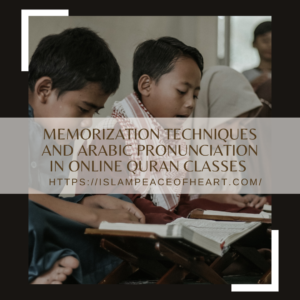#Benefits Of Ar-Rahman The Most Gracious – Islam Peace Of Heart
Benefits Of Ar-Rahman The Most Gracious
Introduction:
In Islamic theology, the concept of Allah’s attributes plays a crucial role in understanding the divine essence and His relationship with creation. Among the 99 Names of Allah, Ar-Rahman (الرحمن) stands out as one of the most profound and encompassing. Translating to “The Most Gracious,” this attribute embodies the boundless compassion and mercy of Allah. It serves as a central theme in Islamic spirituality, influencing how Muslims interact with their faith, their community, and their environment.

This article delves into the significance of Ar-Rahman, exploring its meaning, implications, and the manifold benefits it brings to individuals and society. By examining this divine attribute in depth, we aim to uncover how Ar-Rahman shapes the ethical and spiritual framework of a believer’s life and fosters a compassionate and harmonious society.
Meaning of Ar-Rahman:
Ar-Rahman is derived from the Arabic root “R-H-M,” which encompasses meanings of mercy, compassion, and kindness. It signifies an unconditional, universal grace that Allah bestows upon all creation, regardless of their faith or actions. This divine attribute highlights the inherent benevolence of Allah, making Ar-Rahman a key aspect of understanding His nature.
In the Quran, Ar-Rahman is often mentioned in conjunction with other attributes of Allah, emphasizing the comprehensive and integrative nature of His mercy. For instance, Surah Ar-Rahman, named after this attribute, beautifully illustrates the boundless grace of Allah through its verses, encouraging reflection on the myriad blessings provided to humanity.
Explanation of Ar-Rahman:
Ar-Rahman goes beyond mere forgiveness; it signifies a continuous and all-encompassing mercy that permeates every aspect of existence. Unlike human notions of mercy, which can be conditional and limited, Allah’s mercy as Ar-Rahman is infinite and unreserved. It embraces all of creation, from the smallest creature to the grandest of cosmic phenomena.
The attribute of Ar-Rahman is reflected in various dimensions:
- Creation: Allah’s mercy is evident in the creation of the universe and all living beings. The intricate design and sustenance of life reflect His compassionate will.
- Provision: Ar-Rahman encompasses the provision of sustenance and resources. Every individual’s needs are met through the divine grace that governs the natural world.
- Guidance: The mercy of Ar-Rahman extends to guidance and wisdom, helping humanity navigate the complexities of life and making righteous choices.
- Forgiveness: Ar-Rahman encompasses Allah’s readiness to forgive sins, offering redemption to those who turn to Him in repentance.
100 Benefits Of Embracing Ar-Rahman:
- Enhanced Spiritual Connection: Recognizing Allah as Ar-Rahman deepens a believer’s spiritual connection, fostering a sense of peace and tranquility.
- Increased Compassion: Understanding divine grace leads to heightened empathy and compassion towards others.
- Improved Relationships: Embracing Ar-Rahman can transform interpersonal relationships, encouraging forgiveness and patience.
- Emotional Resilience: Belief in Allah’s grace provides solace during difficult times, enhancing emotional resilience.
- Motivation for Charity: Ar-Rahman inspires acts of charity and generosity, as believers seek to emulate Allah’s mercy.
- Strengthened Faith: Trust in Ar-Rahman reinforces faith in Allah’s wisdom and benevolence.
- Cultivating Forgiveness: Emulating divine mercy encourages forgiveness, both towards oneself and others.
- Promoting Justice: Ar-Rahman motivates believers to seek justice and fairness, reflecting Allah’s equitable nature.
- Encouraging Humility: Awareness of divine grace fosters humility, acknowledging that all blessings come from Allah.
- Fostering Gratitude: Recognizing the gifts of Ar-Rahman instills a deep sense of gratitude.
- Building Community: The mercy of Ar-Rahman fosters communal bonds, promoting harmony and mutual support.
- Guidance in Decision-Making: Belief in Ar-Rahman provides clarity and guidance in making ethical decisions.
- Reducing Anxiety: Trust in Allah’s mercy alleviates anxiety, knowing that one is under His care.
- Encouraging Positive Behavior: Embracing divine grace motivates positive and ethical behavior.
- Enhancing Patience: The concept of Ar-Rahman helps in developing patience during trials and tribulations.
- Strengthening Resolve: Belief in Ar-Rahman fortifies resolve to overcome challenges.
- Facilitating Healing: Divine mercy plays a role in emotional and spiritual healing.
- Inspiring Acts of Kindness: Ar-Rahman motivates acts of kindness towards others.
- Promoting Forgiveness: Embracing divine grace encourages forgiving others, fostering reconciliation.
- Encouraging Reflection: Awareness of Ar-Rahman prompts self-reflection and self-improvement.
- Building Trust in Allah: Trust in Ar-Rahman strengthens reliance on Allah’s plan.
- Enhancing Mental Peace: Belief in divine grace contributes to mental peace and stability.
- Encouraging Altruism: The mercy of Ar-Rahman inspires selfless acts for the benefit of others.
- Fostering Community Support: Embracing Ar-Rahman encourages supporting and uplifting community members.
- Promoting Ethical Conduct: Understanding divine mercy leads to adherence to ethical principles.
- Facilitating Spiritual Growth: Awareness of Ar-Rahman aids in spiritual development and growth.
- Encouraging Humble Living: Belief in Allah’s mercy fosters a humble and modest lifestyle.
- Building Stronger Families: The concept of Ar-Rahman strengthens family bonds through mutual respect and understanding.
- Promoting Social Justice: Ar-Rahman motivates efforts towards achieving social justice and equity.
- Enhancing Personal Integrity: Embracing divine grace encourages personal integrity and honesty.
- Fostering Resilience: Belief in Ar-Rahman provides strength to navigate life’s adversities.
- Encouraging Prayer: The attribute of Ar-Rahman inspires regular prayer and supplication.
- Facilitating Personal Transformation: Divine mercy aids in personal transformation and self-improvement.
- Inspiring Hope: Trust in Ar-Rahman instills hope and optimism for the future.
- Cultivating Generosity: Embracing divine grace encourages a generous and giving spirit.
- Strengthening Community Bonds: Ar-Rahman fosters a sense of unity and togetherness within communities.
- Promoting Peaceful Coexistence: Belief in Ar-Rahman encourages peaceful interactions and coexistence.
- Enhancing Ethical Leadership: The concept of Ar-Rahman influences ethical leadership and governance.
- Facilitating Conflict Resolution: Divine grace provides a foundation for resolving conflicts amicably.
- Encouraging Lifelong Learning: Ar-Rahman inspires continuous learning and personal development.
- Promoting Environmental Stewardship: Awareness of divine mercy motivates efforts to protect and sustain the environment.
- Building Resilient Communities: Embracing Ar-Rahman strengthens the resilience of communities in facing challenges.
- Fostering Forgiveness in Grievances: The mercy of Ar-Rahman encourages reconciliation in times of grievances.
- Encouraging Spiritual Practices: Belief in divine grace leads to the adoption of regular spiritual practices.
- Promoting Ethical Business Practices: Ar-Rahman influences ethical conduct in business and commerce.
- Enhancing Interpersonal Communication: Understanding divine mercy improves communication skills and empathy.
- Facilitating Family Harmony: Embracing Ar-Rahman promotes harmony and understanding within families.
- Inspiring Community Service: The concept of Ar-Rahman motivates individuals to engage in community service.
- Encouraging Sustainable Living: Awareness of divine grace encourages sustainable living practices.
- Promoting Inclusivity: Belief in Ar-Rahman fosters inclusivity and acceptance of diversity.
- Enhancing Emotional Intelligence: Embracing divine mercy contributes to emotional intelligence and self-awareness.
- Facilitating Personal Accountability: Ar-Rahman inspires personal accountability and responsibility.
- Promoting Mental Well-Being: Trust in Allah’s mercy supports mental well-being and stability.
- Fostering Creativity: The attribute of Ar-Rahman encourages creativity and innovation.
- Enhancing Problem-Solving Skills: Belief in divine grace aids in developing effective problem-solving skills.
- Encouraging Self-Reflection: Embracing Ar-Rahman prompts regular self-reflection and introspection.
- Promoting Respect for All Creatures: The concept of Ar-Rahman fosters respect and compassion for all living beings.
- Facilitating Personal Growth: Divine mercy supports ongoing personal and spiritual growth.
- Encouraging Acts of Justice: Belief in Ar-Rahman motivates efforts towards achieving justice and fairness.
- Enhancing Social Responsibility: The mercy of Ar-Rahman fosters a sense of social responsibility and civic duty.
- Promoting Forgiveness in Leadership: Embracing divine grace influences forgiving and compassionate leadership.
- Facilitating Cross-Cultural Understanding: Belief in Ar-Rahman encourages cross-cultural understanding and respect.
- Encouraging Balanced Living: The concept of Ar-Rahman promotes a balanced and harmonious lifestyle.
- Enhancing Family Resilience: Embracing Ar-Rahman strengthens family resilience during challenges.
- Promoting Ethical Consumption: Awareness of divine mercy influences ethical consumption and lifestyle choices.
- Encouraging Humble Leadership: The mercy of Ar-Rahman inspires humble and servant leadership.
- Facilitating Compassionate Governance: Belief in divine grace influences compassionate and just governance.
- Promoting Inclusive Education: Ar-Rahman encourages inclusive and equitable educational practices.
- Enhancing Interfaith Dialogue: Embracing divine mercy fosters respectful and constructive interfaith dialogue.
- Encouraging Volunteerism: The concept of Ar-Rahman motivates individuals to engage in volunteer activities.
- Promoting Sustainable Development: Belief in Ar-Rahman supports sustainable development and environmental conservation.
- Facilitating Personal Empowerment: Divine grace empowers individuals to pursue their goals and aspirations.
- Encouraging Emotional Healing: Awareness of Ar-Rahman aids in emotional healing and recovery.
- Promoting Peaceful Resolutions: Embracing divine mercy facilitates peaceful resolutions in conflicts.
- Enhancing Community Engagement: The mercy of Ar-Rahman fosters active community engagement and participation.
- Encouraging Financial Integrity: Belief in Ar-Rahman influences financial integrity and ethical practices.
- Facilitating Personal Fulfillment: Divine grace supports personal fulfillment and life satisfaction.
- Promoting Healthy Relationships: Embracing Ar-Rahman enhances the quality of personal and professional relationships.
- Encouraging Social Innovation: The concept of Ar-Rahman inspires social innovation and progress.
- Facilitating Cultural Exchange: Belief in divine mercy fosters positive cultural exchange and understanding.
- Promoting Compassionate Healthcare: Ar-Rahman encourages compassionate and holistic approaches to healthcare.
- Enhancing Conflict Mediation: The mercy of Ar-Rahman supports effective conflict mediation and resolution.
- Encouraging Spiritual Healing: Awareness of divine grace aids in spiritual healing and growth.
- Promoting Ethical Journalism: Embracing Ar-Rahman influences ethical practices in journalism and media.
- Facilitating Collaborative Efforts: Belief in divine grace encourages collaborative efforts for common goals.
- Enhancing Community Resilience: The concept of Ar-Rahman strengthens community resilience and solidarity.
- Encouraging Respectful Dialogue: Embracing divine mercy fosters respectful and constructive dialogue.
- Promoting Environmental Stewardship: Awareness of Ar-Rahman supports efforts to protect and preserve the environment.
- Facilitating Personal Development: Divine grace aids in personal development and self-improvement.
- Encouraging Support for the Vulnerable: The mercy of Ar-Rahman inspires support and care for vulnerable populations.
- Promoting Ethical Consumerism: Belief in Ar-Rahman influences ethical consumer choices and practices.
- Enhancing Cultural Sensitivity: Embracing divine mercy fosters cultural sensitivity and appreciation.
- Facilitating Effective Communication: Awareness of Ar-Rahman enhances communication skills and understanding.
- Encouraging Community Building: The concept of Ar-Rahman supports efforts to build strong and cohesive communities.
- Promoting Justice in Business: Belief in divine grace influences fairness and justice in business practices.
- Facilitating Personal Reflection: Embracing Ar-Rahman encourages personal reflection and growth.
- Enhancing Social Cohesion: The mercy of Ar-Rahman fosters social cohesion and unity.
- Encouraging Acts of Kindness: Awareness of divine grace motivates acts of kindness and generosity.
- Promoting Responsible Leadership: The concept of Ar-Rahman influences responsible and ethical leadership.
- Facilitating Interpersonal Harmony: Belief in Ar-Rahman enhances interpersonal harmony and mutual respect.
Conclusion:
Ar-Rahman, as “The Most Gracious,” represents a cornerstone of Islamic belief, illustrating the boundless mercy and compassion of Allah. Embracing this divine attribute enriches the lives of believers, guiding their actions, relationships, and spiritual practices. The numerous benefits of understanding and embodying Ar-Rahman reflect its profound impact on personal development, community building, and societal harmony.
By recognizing the significance of Ar-Rahman, individuals are inspired to cultivate a more compassionate, just, and harmonious world. The divine grace that characterizes Ar-Rahman serves as a model for ethical living, motivating believers to embody mercy in their daily lives and interactions.
FAQ:
1. What is the significance of Ar-Rahman in Islam?
Ar-Rahman signifies Allah’s boundless and unconditional mercy. It emphasizes His grace towards all creation, influencing how Muslims understand and relate to divine compassion.
2. How does Ar-Rahman impact daily life?
Embracing Ar-Rahman fosters compassion, forgiveness, and empathy in daily life, encouraging positive behavior and enhancing relationships with others.
3. Can you provide examples of how Ar-Rahman manifests in the Quran? S
urah Ar-Rahman is a prime example, illustrating Allah’s grace through descriptions of His blessings and the natural world, inviting reflection and gratitude.
4. How does Ar-Rahman influence interpersonal relationships?
Belief in Ar-Rahman encourages forgiveness, patience, and empathy, improving the quality of interpersonal relationships and fostering community support.
5. What role does Ar-Rahman play in personal development?
Understanding Ar-Rahman aids in personal growth by fostering humility, resilience, and ethical behavior, contributing to overall well-being and spiritual fulfillment.








Post Comment